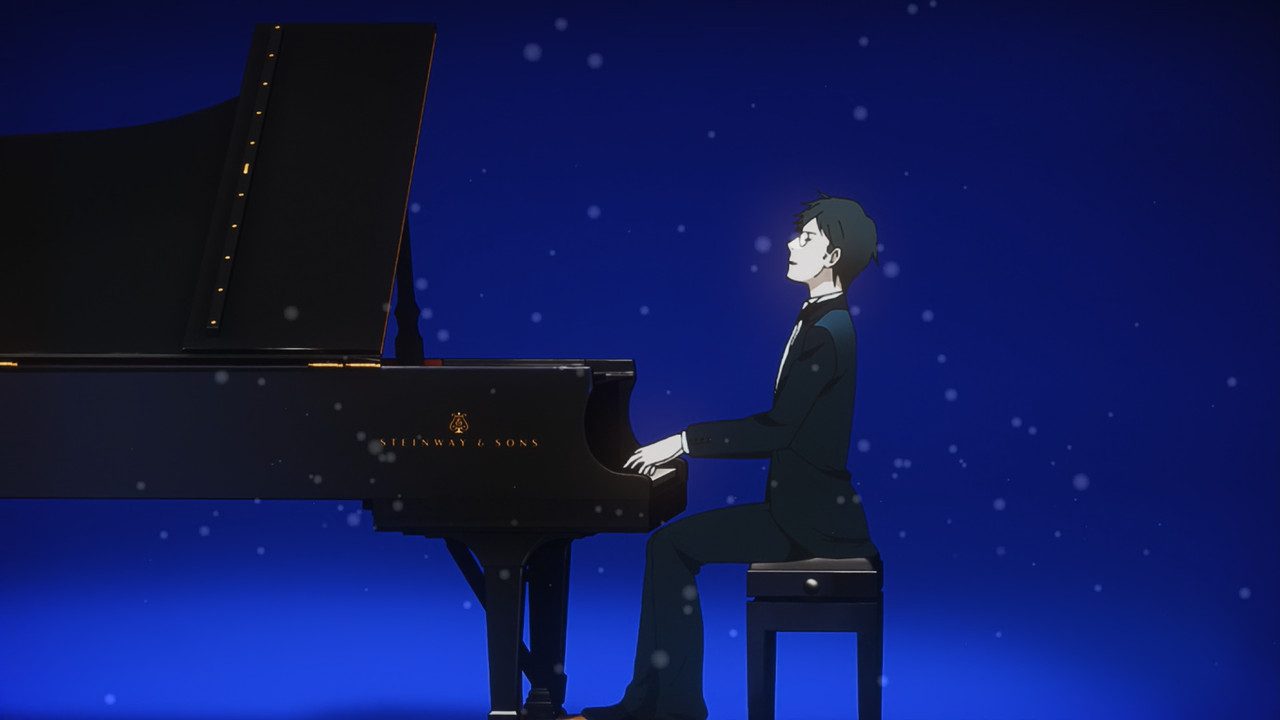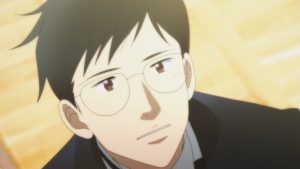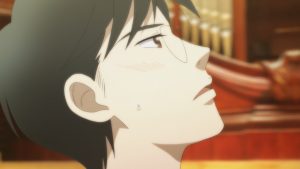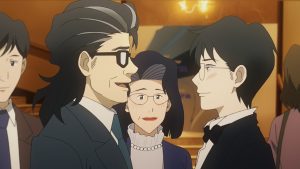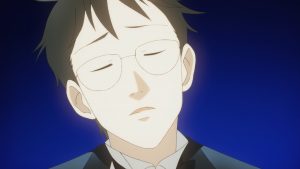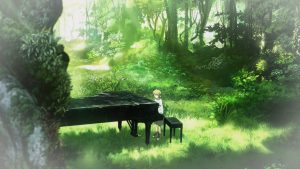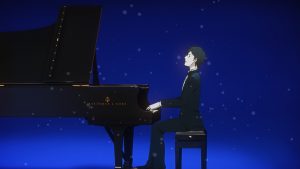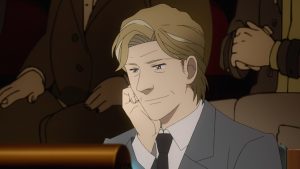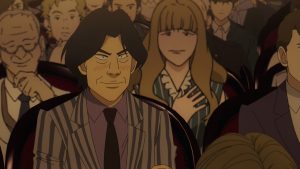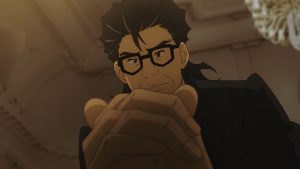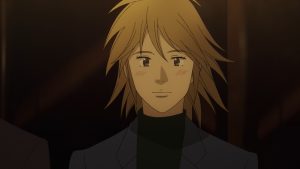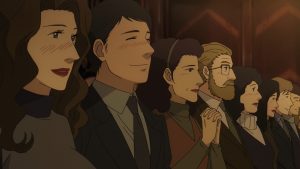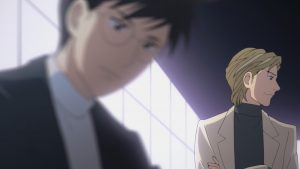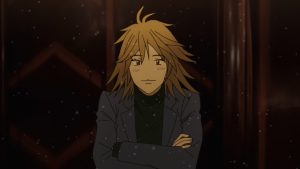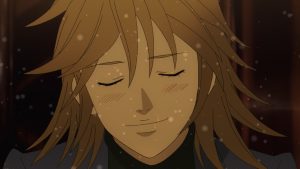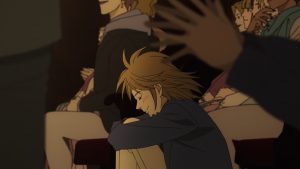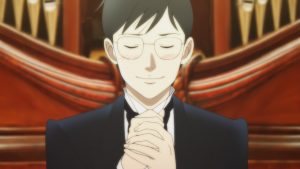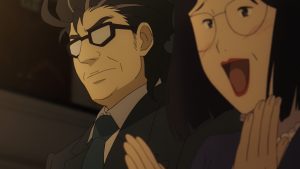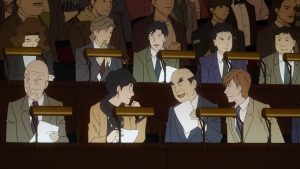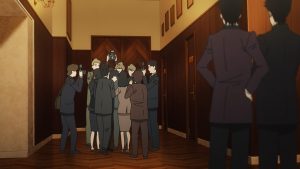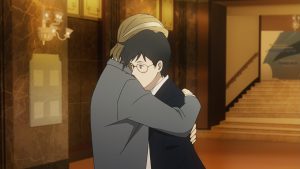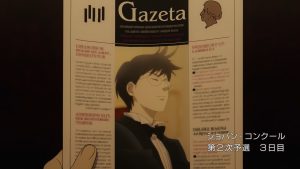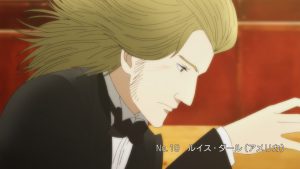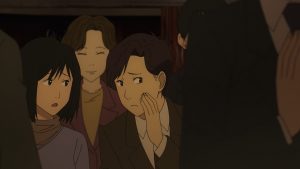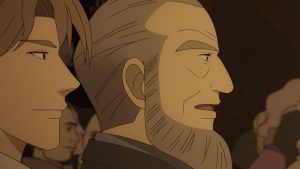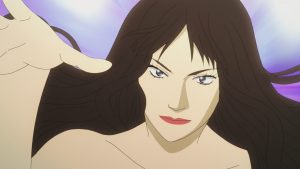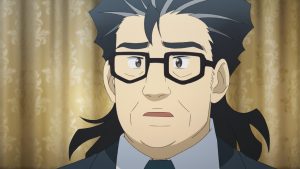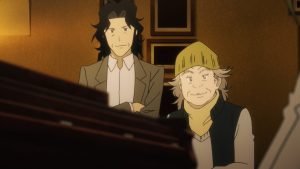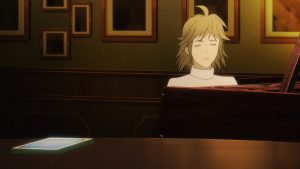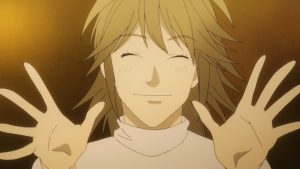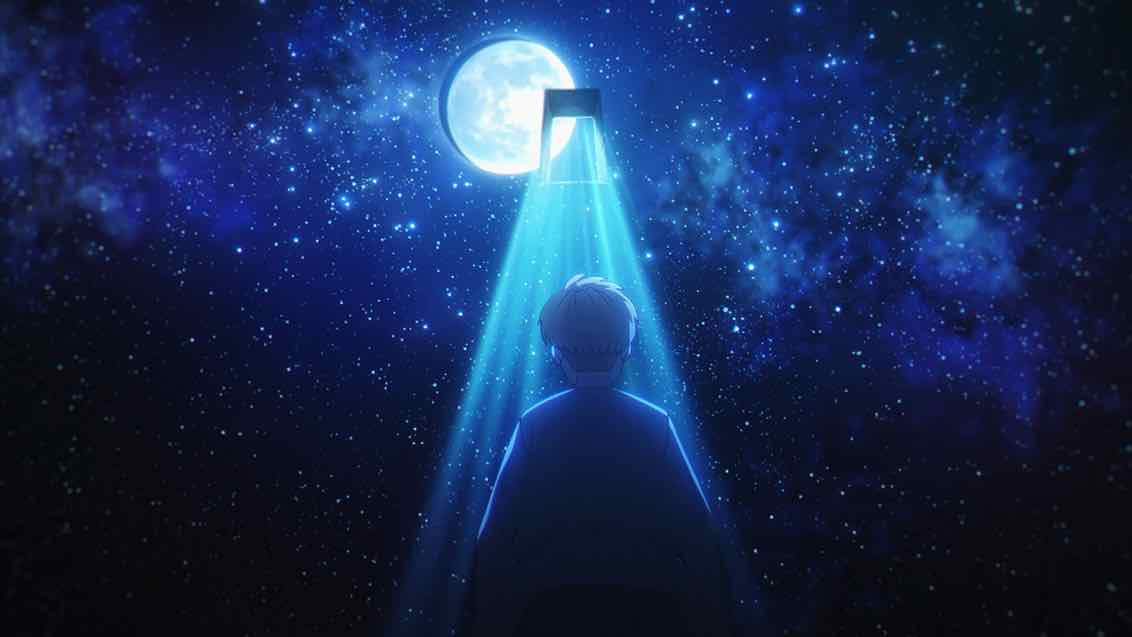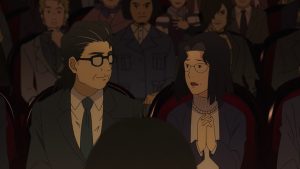 I have a problem with certain types of competitions – figure skating is one – where the stress of watching, knowing any mistake can potentially destroy years of hard work a young person has out into their craft, is too nerve-wracking. Piano competitions are another one that fit that bill for me – they stress me the hell out. Even fictional ones, as it turns out. At this point I have a fair amount of emotional investment in what happens to Shuuhei, so his performance was the worst of the lot for me.
I have a problem with certain types of competitions – figure skating is one – where the stress of watching, knowing any mistake can potentially destroy years of hard work a young person has out into their craft, is too nerve-wracking. Piano competitions are another one that fit that bill for me – they stress me the hell out. Even fictional ones, as it turns out. At this point I have a fair amount of emotional investment in what happens to Shuuhei, so his performance was the worst of the lot for me.
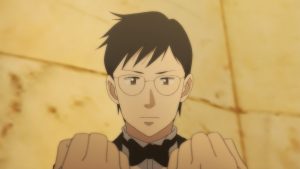 That gripe aside – or perhaps it’s even an acknowledgement – this was one of the strongest episodes of Piano no Mori. This was seriously good stuff – even the animation and backgrounds were a step back from the ledge they were teetering on last week. The tension was high from start to finish, the cinematography and direction were excellent, and as usual the music was sublime. It’s hard to screw up Chopin, sure, but it can be done – and one thing Piano no Mori has done is make sure that side of things is well and truly unassailable.
That gripe aside – or perhaps it’s even an acknowledgement – this was one of the strongest episodes of Piano no Mori. This was seriously good stuff – even the animation and backgrounds were a step back from the ledge they were teetering on last week. The tension was high from start to finish, the cinematography and direction were excellent, and as usual the music was sublime. It’s hard to screw up Chopin, sure, but it can be done – and one thing Piano no Mori has done is make sure that side of things is well and truly unassailable.
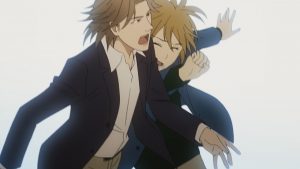 That was especially important this week, because the artist portraying Shuuhei had to reflect a fundamental change in his playing style. I confess, there was a bit of condescension even in what was supposed to be Shuuhei’s grand moment, when he finally throws off the yoke of technicality and embraces the music. As if what he was doing before was worthless. No denying it, there’s validity to this theme – musicians are no more supposed to be robots than painters or novelists. They’re individuals, and their art has to reflect their soul. That said, though, there’s something fundamentally different about a medium where performance is interpretation, rather than pure creation. A balance has to be struck – I just happen to think the prevailing attitude of popular fiction is somewhat out of balance on this topic.
That was especially important this week, because the artist portraying Shuuhei had to reflect a fundamental change in his playing style. I confess, there was a bit of condescension even in what was supposed to be Shuuhei’s grand moment, when he finally throws off the yoke of technicality and embraces the music. As if what he was doing before was worthless. No denying it, there’s validity to this theme – musicians are no more supposed to be robots than painters or novelists. They’re individuals, and their art has to reflect their soul. That said, though, there’s something fundamentally different about a medium where performance is interpretation, rather than pure creation. A balance has to be struck – I just happen to think the prevailing attitude of popular fiction is somewhat out of balance on this topic.
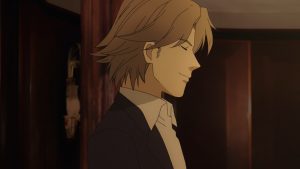 That said, there can be no denying that Shuuhei felt liberated at the piano here – at one with it, as he muses to himself. The fear of making a mistake can be crippling, and having quelled that fear Shuuhei’s music finds a new emotional resonance – most importantly, for him. But not fearing mistakes means you make a few, and he does – and he lets his euphoria push his tempo a bit too much, too. The crowd eats it up but Youichirou is extremely worried that his son has picked the wrong time to express himself musically (and strictly speaking, he’s right).
That said, there can be no denying that Shuuhei felt liberated at the piano here – at one with it, as he muses to himself. The fear of making a mistake can be crippling, and having quelled that fear Shuuhei’s music finds a new emotional resonance – most importantly, for him. But not fearing mistakes means you make a few, and he does – and he lets his euphoria push his tempo a bit too much, too. The crowd eats it up but Youichirou is extremely worried that his son has picked the wrong time to express himself musically (and strictly speaking, he’s right).
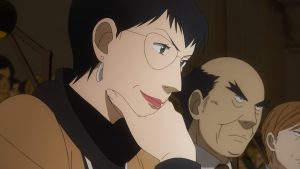 The problem here is that Youichirou – who I think has generally come off as a pretty good parent under the circumstances – can’t bring himself to praise his son for doing something so fundamentally anathema to his own way of thinking. Even when Shuuhei’s stern teacher Pavlas praises and embraces him, all Youichirou can do is fret about his son’s mistakes and try to prod Pavlas (who’s forbidden to judge his own student, despite being vice-chair of the panel) for the inside dope on how Shuuhei was received. When the son needs the father to show belief in him, Youichirou undercuts the son’s newfound confidence. It’s sad to see, honestly, but at this point Shuuhei should be used to getting the short end of the stick (not least from the author).
The problem here is that Youichirou – who I think has generally come off as a pretty good parent under the circumstances – can’t bring himself to praise his son for doing something so fundamentally anathema to his own way of thinking. Even when Shuuhei’s stern teacher Pavlas praises and embraces him, all Youichirou can do is fret about his son’s mistakes and try to prod Pavlas (who’s forbidden to judge his own student, despite being vice-chair of the panel) for the inside dope on how Shuuhei was received. When the son needs the father to show belief in him, Youichirou undercuts the son’s newfound confidence. It’s sad to see, honestly, but at this point Shuuhei should be used to getting the short end of the stick (not least from the author).
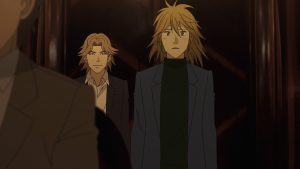 What can’t be denied, unfortunately, is that while Youichirou shouldn’t be burdening Shuuhei with it he’s right, that performance was potentially dodgy in a piano competition. And there’s some evidence that politics is holding sway over the judges – mediocre Polish entrants are passed through while others are dropped. Not least of those Adamski, who may be Polish but is probably treated even more harshly than a foreigner because he dared to reject the system and blaze his own trail. With only 12 spots in the finals and several entrants basically given a bye (including Kai, whose phantom finger injury surely won’t stop him from advancing), Shuuhei is nothing like a lock. I suspect he will advance to the finals so he can gracefully lose to Kai but not till the end of all things, but I wouldn’t be totally shocked if he doesn’t make it.
What can’t be denied, unfortunately, is that while Youichirou shouldn’t be burdening Shuuhei with it he’s right, that performance was potentially dodgy in a piano competition. And there’s some evidence that politics is holding sway over the judges – mediocre Polish entrants are passed through while others are dropped. Not least of those Adamski, who may be Polish but is probably treated even more harshly than a foreigner because he dared to reject the system and blaze his own trail. With only 12 spots in the finals and several entrants basically given a bye (including Kai, whose phantom finger injury surely won’t stop him from advancing), Shuuhei is nothing like a lock. I suspect he will advance to the finals so he can gracefully lose to Kai but not till the end of all things, but I wouldn’t be totally shocked if he doesn’t make it.


